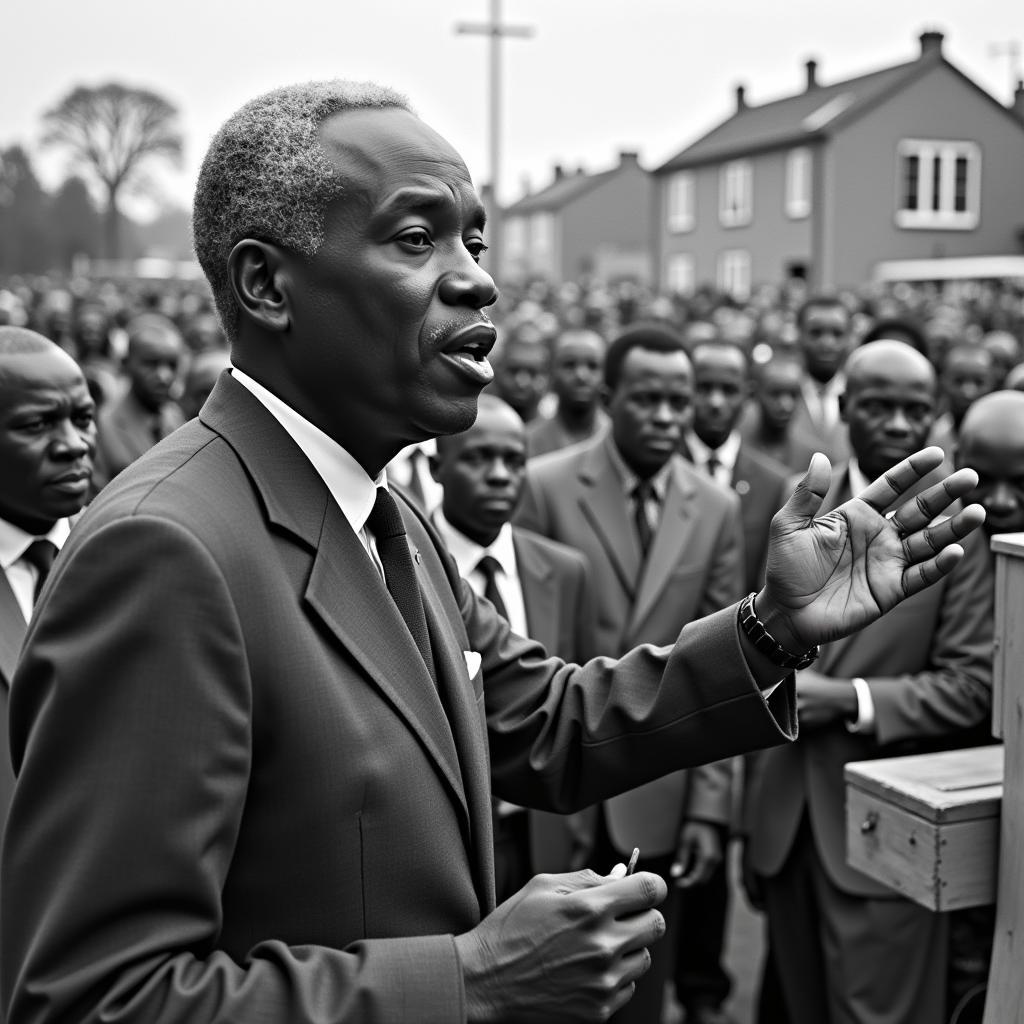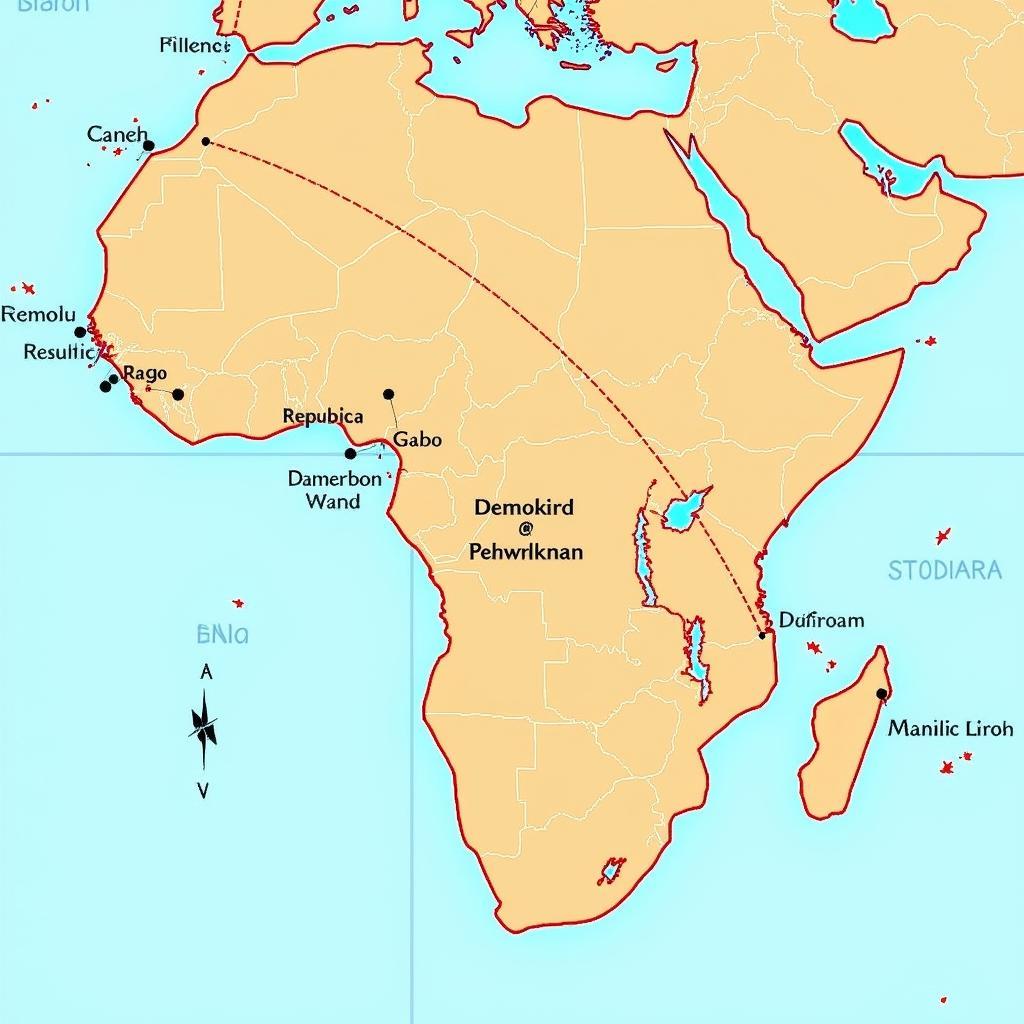Kenneth Kaunda: The African Gandhi and Zambia’s Founding Father
Kenneth Kaunda, often referred to as the “African Gandhi,” led Zambia to independence and championed pan-Africanism for decades. His philosophy of humanism shaped Zambia’s national identity and resonated across the continent. african ghandi
Early Life and the Path to Independence
Born in 1924 in Northern Rhodesia (now Zambia), Kenneth Kaunda’s early life was marked by a strong sense of social justice. Witnessing the injustices of colonial rule, he became involved in the struggle for independence. He embraced non-violent resistance, drawing inspiration from Mahatma Gandhi’s philosophy. This approach earned him the moniker “African Gandhi,” highlighting his commitment to peaceful change.
Kaunda played a pivotal role in establishing and leading political organizations. He founded the Zambian African National Congress (ZANC), later banned by the colonial authorities. Undeterred, he formed the United National Independence Party (UNIP), which spearheaded the final push for independence. His unwavering dedication and strategic leadership were crucial in achieving Zambia’s freedom in 1964. african gandhi name
Kaunda’s Philosophy of Humanism: Shaping a Nation
Central to Kaunda’s vision for Zambia was his philosophy of “Humanism.” It sought to blend traditional African values with socialist principles, emphasizing community, equality, and self-reliance. He envisioned a society where individual dignity and collective well-being were intertwined.
 Kenneth Kaunda explaining his philosophy of Humanism to a gathering.
Kenneth Kaunda explaining his philosophy of Humanism to a gathering.
Implementing Humanism in Zambia
Kaunda’s Humanism influenced various aspects of Zambian society, from education and healthcare to economic policies. He nationalized key industries, aiming to distribute wealth more equitably and reduce dependence on foreign corporations. While his policies aimed to empower Zambians, they also faced criticism for their impact on the economy.
Challenges and Legacy
Kaunda’s rule, while initially marked by progress, faced increasing challenges. Economic difficulties, political dissent, and international pressures contributed to a decline in his popularity. In 1991, after decades of one-party rule, he conceded power in Zambia’s first multi-party elections. who is known as african gandhi
Despite the controversies surrounding his later years in power, Kaunda’s legacy remains significant. He is revered as a liberation hero and a champion of pan-Africanism. african gand, african gandhi who
Conclusion: Kenneth Kaunda, the “African Gandhi,” left an enduring mark on Zambia and the African continent. His leadership in the struggle for independence, his unique philosophy of Humanism, and his dedication to pan-Africanism continue to inspire generations.
FAQ
- Why was Kenneth Kaunda called the “African Gandhi”?
- What was Kaunda’s philosophy of Humanism?
- How did Kaunda contribute to Zambia’s independence?
- What were the key challenges faced by Kaunda’s government?
- What is Kenneth Kaunda’s lasting legacy?
- How did Humanism influence Zambian society?
- What role did Kaunda play in the pan-African movement?
Need assistance? Contact us at Phone: +255768904061, Email: kaka.mag@gmail.com or visit us at Mbarali DC Mawindi, Kangaga, Tanzania. Our customer service team is available 24/7.

